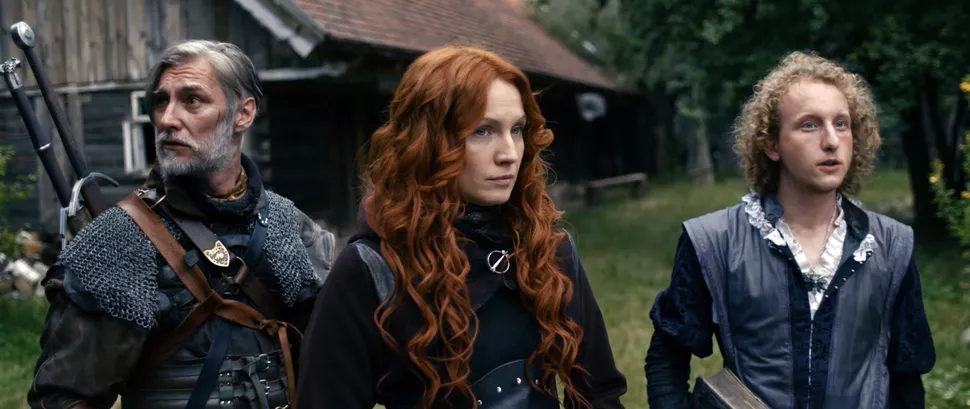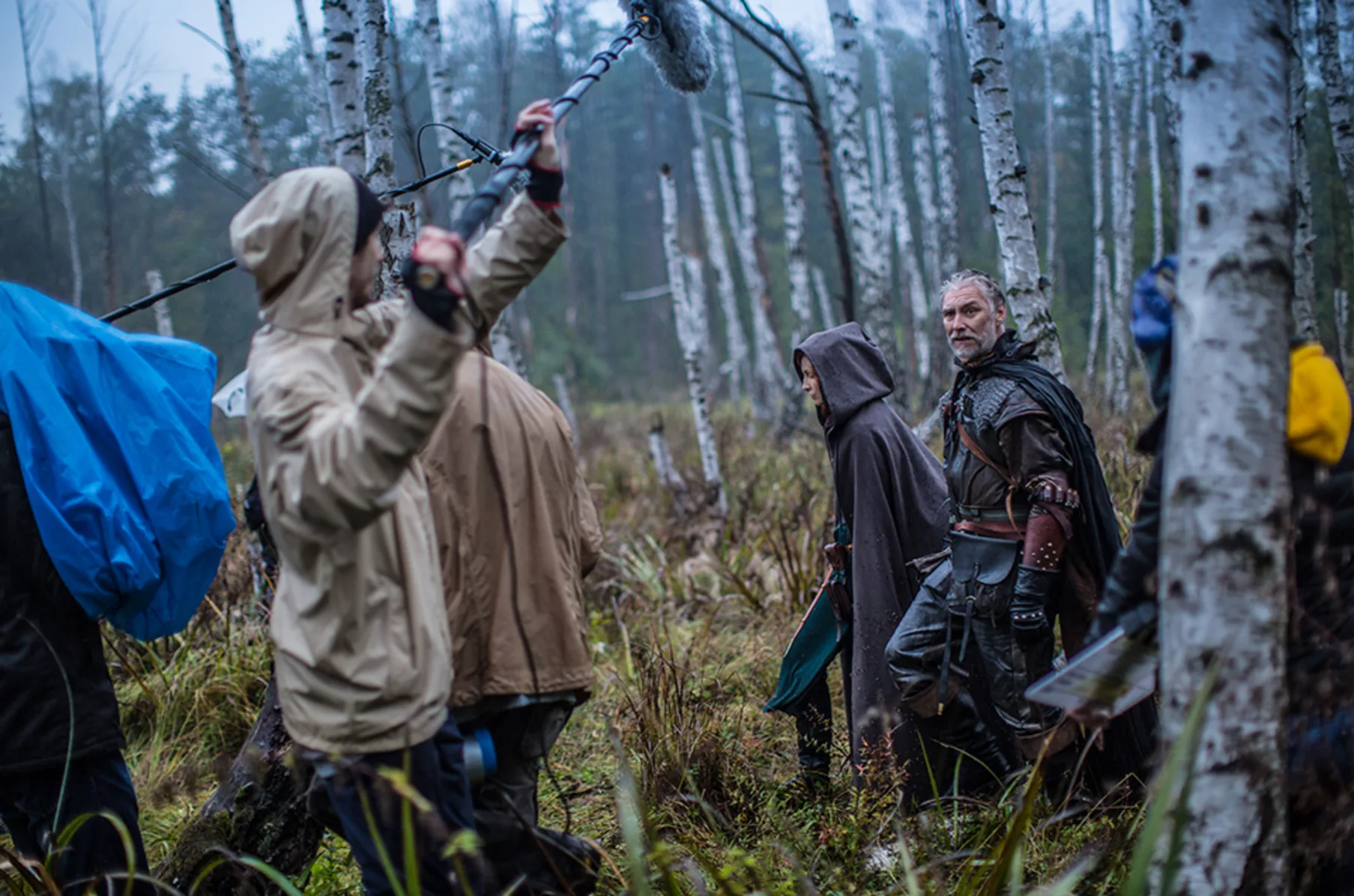The Witcher’s Controversial Simplification
Netflix’s take on Andrzej Sapkowski’s revered series, The Witcher, has certainly not been without its controversies. The most recent contention arose when executive producer, Tomek Baginski, laid the blame squarely on the shoulders of American viewers and the millennial audience for the series’ “painful” oversimplifications. This raises several questions. Were these adaptations and changes genuinely unexpected? Or, in the age of digital streaming, where audience retention and completion rates are pivotal, were such alterations a predictable outcome?
With its vast and diverse viewership, the streaming ecosystem necessitates content that resonates with a broad spectrum of tastes and preferences. However, streamlining and simplifying a narrative doesn’t always mean sacrificing its core essence. It’s a sentiment that resonates with many viewers and critics alike, myself included. Despite many’s high hopes for Netflix’s adaptation, it often feels like a watered-down, generic fantasy, losing the rich, intricate depth and darkness that defines Sapkowski’s original vision.
This perception isn’t merely subjective. The somewhat tepid response to Season 3, which has only managed to secure a 20% approval rating on Rotten Tomatoes, underscores the consensus surrounding the show’s current direction.
Enter Alzur’s Legacy: A Breath of Authenticity

While it may be tempting to dismiss Netflix’s portrayal due to its perceived inadequacies, it’s crucial to remember that the world of adaptations is vast, and other gems are waiting to be discovered by genuine fans. Among these treasures is the commendable Alzur’s Legacy. This fan-driven project is a shining example of how dedication to authenticity can yield results that resonate deeply with fans, especially where larger productions like Netflix may have missed the mark.
First brought to light by PC Gamer in 2017, Alzur’s Legacy is more than just a fan film; it’s a labor of love, realized in 2019, that breathes new life into The Witcher’s expansive universe. Venturing beyond the familiar paths tread by Geralt; the story introduces audiences to the intriguing escapades of Lambert, a fellow witcher from the School of the Wolf, and the fiery sorceress Triss Merigold. Together, they embark on a gripping quest about the legendary mage Alzur’s Almanach, promising a tale of mystery and suspense.
Operating within the constraints of a limited budget, one might expect Alzur’s Legacy to falter. However, it does anything but. In its earnest endeavor, the film encapsulates the soul of Sapkowski’s intricate world. Viewers are treated to a tapestry woven with dark, brooding themes, character-driven narratives, and mesmerizing visuals that mirror the universe’s enchanting allure.
It faithfully brings to life elements core to The Witcher’s identity: the mystique of potion-making, the allure of magic, and the charm of iconic characters such as the bard Jaskier, also known as Dandelion. Moreover, its attention to minutiae — like consistently grounding the audience in the story’s setting — offers a refreshing contrast to Netflix’s version, sometimes leaving viewers grappling with its pacing and geographical shifts.
Aesthetics and Cinematic Choices

Alzur’s Legacy is undeniably a masterclass in cinematography, particularly when you delve into its visual storytelling. The film’s frames and shots evoke strong echoes of the illustrious Akira Kurosawa’s directorial flair. The sweeping landscapes, the way the camera lingers on nature and characters, and the deliberate, thoughtful pacing are reminiscent of Kurosawa’s iconic style, lending an almost poetic quality to the movie.
Such a treatment starkly contrasts with Netflix’s adaptation, which occasionally seems frenetic; its hurried scene changes make it harder for viewers to connect with the world and its characters.

But it’s not just the cinematography of Alzur’s Legacy that dazzles. The meticulously crafted sets, brimming with minute details, transport you directly into the heart of Sapkowski’s universe. Each prop seems handpicked to mirror the authenticity of The Witcher’s world. This dedication to authenticity, combined with the undeniable on-screen rapport between Mariusz Drezek, who portrays Lambert, and Magdalena Rózanska, stepping into the shoes of Triss, creates a magnetic pull, drawing viewers deeper into the narrative.
The film’s achievements become even more commendable when considering budget constraints. While Alzur’s Legacy may not boast the grandeur of high-end CGI monsters that many big-budget productions splash across the screen, it compensates with something infinitely more precious: genuine emotion and passion. This heart and soul embedded within the film resonate deeply, making it a standout in its own right.
For Fans, By Fans
For many ardent fans who may feel somewhat let down by Netflix’s more mainstream rendition of The Witcher, Alzur’s Legacy emerges as a rejuvenating experience. It serves as a nostalgic return to the roots of Sapkowski’s captivating universe, reminiscent of the raw emotion and intricate storytelling fans have come to love. It’s not just a fan film; it’s a love letter to the Witcher’s lore, presented in a format accessible to viewers worldwide.
Hosted on YouTube, this masterpiece ensures that language isn’t a barrier, thanks to the plethora of subtitle options catering to diverse audiences.
The film offers more than just the standard YouTube stream for fans who prioritize viewing quality. The availability of a 9GB high-definition version, paired with comprehensive subtitle files, guarantees an immersive experience. It’s akin to having a personal theater showcase of a cherished narrative at one’s fingertips.

In wrapping up, there’s a unique magic in fan-made creations that big-budget productions sometimes miss. While Netflix’s adaptation of The Witcher has undoubtedly found its audience and deserves acknowledgment for its efforts, it’s heartwarming to see fans rise to the occasion, crafting pieces like Alzur’s Legacy that resonate deeply with the core fanbase. This film is not just an alternative; it’s a poignant reminder of the boundless passion fans possess and their ability to breathe life into cherished tales.









